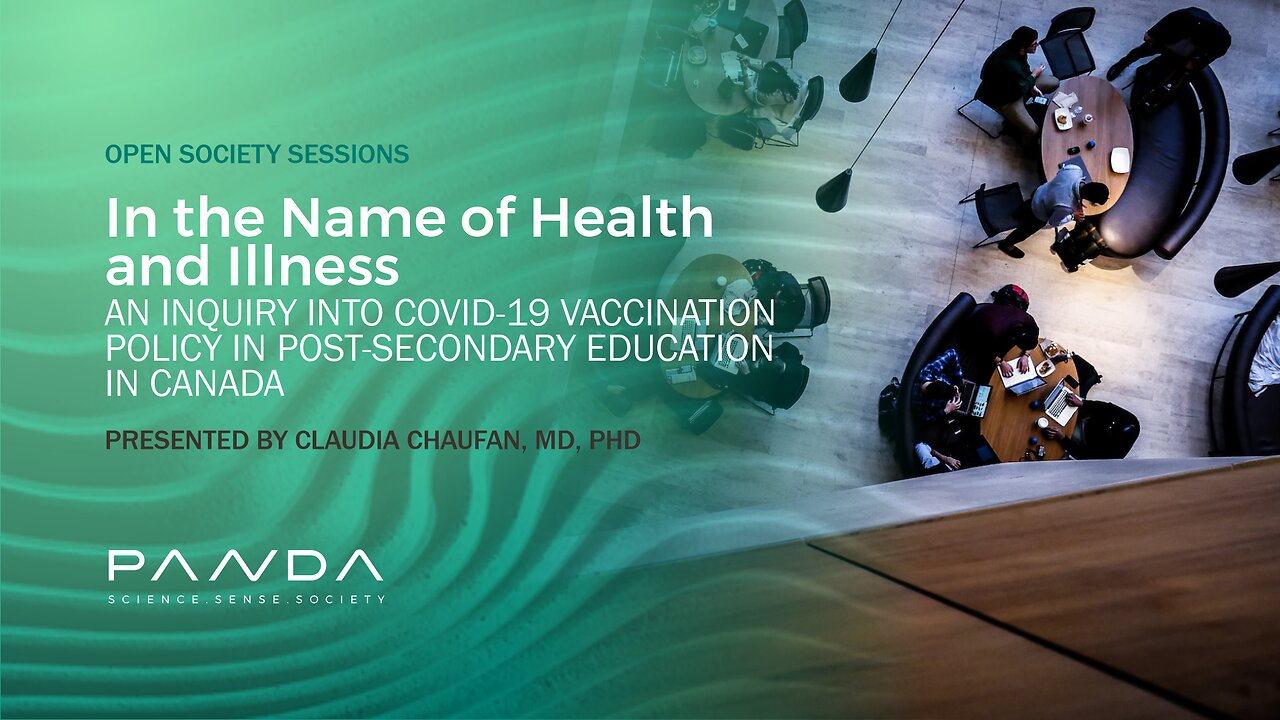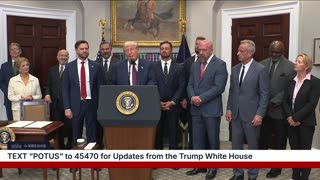Premium Only Content

In the Name of Health and Illness | Claudia Chaufan, MD, PhD
Since the launch of the Covid-19 global vaccination campaign in December of 2020, vaccination in postsecondary education has been a contested issue, even as it has been embraced enthusiastically in Canadian postsecondary institutions. International evidence indicates that these institutions have achieved high vaccination rates and Canadian public health agencies exclude them entirely from the list of institutions at risk of outbreaks. On the other hand, influential observers, and postsecondary institutions themselves insist that not only achieving, but also maintaining, “up-to-date” vaccination - through mandates if necessary – remains critical to contain the crisis. However, with the increasing recognition that vaccines do not stop viral spread, that young populations are at an exceedingly low risk of severe Covid or death, that Covid injections themselves bear major risks, and that mandated medical interventions have a troubled history with repercussions to this day, the soundness of current vaccination policies in postsecondary institutions should be questioned.
Drawing from the medicalization tradition, Claudia and Natalie Hemsing’s study explores, through in-depth interviews, how vaccination policies within and beyond postsecondary institutions have shaped perceptions of the Covid-19 crisis, beliefs about the role, risks, and benefits of vaccination, and life choices and chances of students in Canada. The study finds that students largely comply with vaccination policies, whether by conviction, convenience, or coercion, and that the discourse and social practices promoted by the policies limits opportunities for free debate and exchange across vaccination statuses. The high cost of noncompliance allows little space for resistance, present nonetheless regardless of this status. Claudia and Natalie discuss the implications of their findings for policy, equity, and for the power of medical social control more generally in the Covid-19 era.
Claudia Chaufan, M.D., Ph.D., is Associate Professor of Health Policy at York University, past Health Graduate Program Director, and past Fulbright Scholar. She is also an active member of the Scientific and Medical Advisory Committee of the Canadian Covid Care Alliance. Dr. Chaufan teaches and researches the social and political determinants of health, comparative health policy, the geopolitics of health, and medicalization and social control. She has published widely in academic and lay venues, has held NIH, CIHI, and SSHRC grants, and is editorial board member and reviewer for various refereed journals. Current projects include the politics of sanctions policy, the geopolitics of anti-Asian racism, and medicalization and social control in the Covid-19 era.
The Covid event has revealed that it was about more than just public health and the political, economic and societal aspects of the response are of far greater significance than the virus itself. There remains a continued drive toward the transformation of our societies in ways that threaten democracy and our existing ways of life. Open Society Sessions aim to examine the political, societal and economic dimensions of our recent experience and analyse developments in the future.
Support our work: https://www.pandata.org/donate
-
 21:19
21:19
PANDA | Science. Sense. Society.
8 months agoA Farewell to Virology | Dr Mark Bailey
1.09K4 -
 18:33
18:33
World2Briggs
5 hours ago $0.05 earnedWhy Did Mississippi Go From Rich To Poor?
986 -
 11:21
11:21
Anthony Rogers
3 hours agoKILLSWITCH ENGAGE interview
51 -
 4:31:00
4:31:00
RalliedLIVE
1 day ago $5.95 earnedBattlefield 6 REVEAL w/ Ral
51.7K5 -
 2:11:14
2:11:14
Redacted News
4 hours agoArrest Hillary Clinton!?! Here we go! | Redacted News Live
163K72 -
 1:18:29
1:18:29
Sarah Westall
3 hours ago“This Conversation Would Land Me in Prison in Ireland” - Its the Global Plan w/ Captain Kieran Kelly
31.5K5 -
 44:45
44:45
The White House
4 hours agoPresident Trump Signs an Executive Order, July 31, 2025
33.9K37 -
 1:00:00
1:00:00
BEK TV
21 hours agoOpen Range
1.19K -
 1:15:42
1:15:42
vivafrei
5 hours agoPelosi Doth Protest Too Much! "Trans" Athlete Plot to Harm Female? Crooked hillary Cooked & MORE
113K34 -
 1:42:17
1:42:17
The Quartering
6 hours agoHillary Clinton FINALLY BUSTED, Nancy Pelosi MELTDOWN, Kamala Harris Admits Defeat & More
145K101